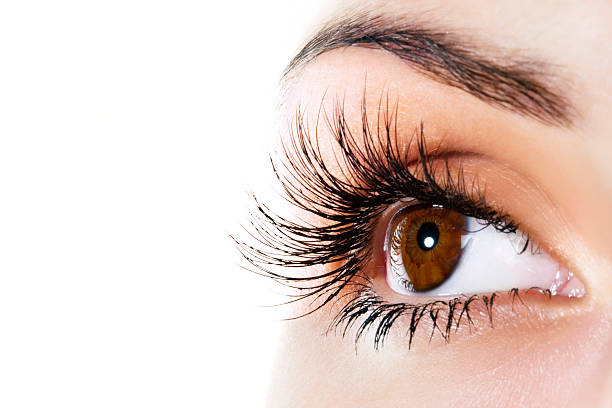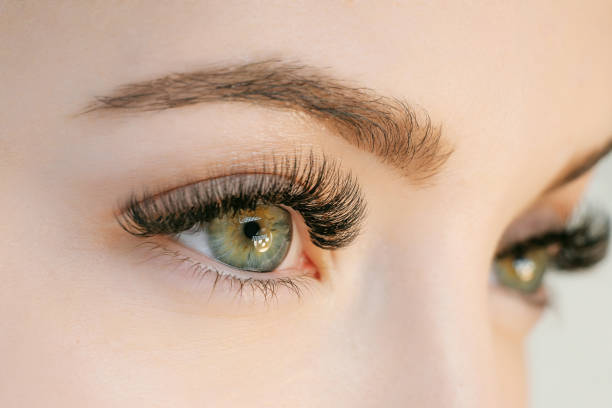When your eyelashes fall out, it can be a concerning and puzzling experience. Eyelashes, while often prized for their beauty, play a crucial role in protecting the eyes from debris, sweat, and other irritants. The loss of eyelashes, medically known as madarosis, can occur for various reasons – from the harmless natural shedding that is part of their life cycle, to more severe underlying health conditions. This article aims to demystify the phenomena behind eyelash loss, examine its common causes, and suggest ways to prevent or treat the condition. Understanding why eyelash loss can occur is the first step toward maintaining the health and appearance of your eyelashes.
The Role of Eyelashes in Eye Health

The importance of eyelashes extends far beyond aesthetics. They serve as the first line of defense against environmental pollutants and aid in the protection of the delicate ocular surface. Each eyelash has a life cycle that includes growth, resting, and shedding phases. This natural cycle ensures that the lashes remain effective in their protective role. Eyelashes also reduce airflow over the cornea, which can help prevent dry eyes, and trap dust and debris before they have the chance to enter the eye.
Common Reasons for Eyelash Loss

Most individuals experience some degree of eyelash loss without immediate cause for alarm. It is part of the natural growth and replenishment cycle that keeps eyelashes at optimal health. However, various factors can cause eyebrows to fall out more rapidly or inhibit their regrowth.
Makeup and beauty treatments can unknowingly contribute to eyelash loss. Heavy makeup can lead to buildup on the eyelids and lashes, while the removal process can be abrasive-pulling out hairs in the process. Eyelash curlers can stress lashes at their root, and glue from false eyelashes or extensions can cause damage when not applied or removed correctly. It’s vital to use makeup conscientiously and remove it gently to minimize adverse effects on your lashes.
More Serious Causes of Eyelash Loss
Eyelash loss can sometimes be a sign of underlying health issues that require medical evaluation. While occasional eyelash loss is normal, significant or sudden loss may indicate a more serious condition. Here are some potential serious causes:
- Blepharitis:An inflammation of the eyelid that can affect the eyelashes, causing them to fall out due to associated swelling and redness.
- Thyroid Conditions:Both hypothyroidism and hyperthyroidism can cause hair loss, including the eyelashes, due to hormonal imbalances affecting the hair growth cycle.
- Alopecia Areata:An autoimmune disease that causes the body to attack its own hair follicles, leading to hair loss on the scalp, eyebrows, and eyelashes.
- Lupus:Another autoimmune disease where the immune system attacks the body’s tissues, potentially affecting the hair follicles and leading to eyelash loss.
- Chemotherapy:Cancer treatments such as chemotherapy often cause hair loss as a side effect, which can include loss of eyelashes.
Diagnosing Eyelash Loss
Eyelash loss that is sudden or accompanied by other symptoms necessitates a visit to the doctor. A doctor will usually take a detailed health history and may perform a physical examination of the eyelids. They could also check for skin disorders or signs of systemic disease that could be affecting eyelash growth.
| Test | Purpose | Performed By |
|---|---|---|
| Skin Scraping | Identifying Skin Conditions | Dermatologist |
| Blood Tests | Checking Hormone Levels | General Practitioner |
| Biopsy | Examining Hair Follicles | Trichologist |
Prevention and Treatment Strategies for Eyelash Loss
Implementing a few key habits can prevent unnecessary eyelash loss. Firstly, handling your eyelashes delicately during makeup application and removal is critical. A healthy diet can also promote robust eyelash growth, as they are made of keratin, similar to hair.
- Maintain Proper Eyelid Hygiene:Regularly clean your eyelids to remove dirt and makeup, reducing the risk of infections that can lead to eyelash loss.
- Use Gentle Makeup Products:Opt for hypoallergenic makeup and avoid harsh chemicals that can irritate the eyelid and damage eyelashes.
- Avoid Mechanical Damage:Be gentle when curling your eyelashes and avoid pulling or tugging on them when applying or removing makeup.
- Nutritional Support:Ensure your diet includes sufficient nutrients that support hair health, such as proteins, vitamins A and C, and omega-3 fatty acids.
- Manage Stress:Since stress can contribute to hair loss, including eyelashes, finding effective ways to manage stress can help mitigate this issue.
- Consider Growth Serums:Eyelash growth serums that contain active ingredients like peptides or prostaglandins can promote stronger and fuller lashes.
- Consult a Dermatologist:If you experience significant eyelash loss, a dermatologist can provide diagnoses and treatment options, potentially including prescription medications.
Several treatments hold promise for those experiencing significant eyelash loss. Over-the-counter options, such as eyelash serums, can condition and strengthen eyelashes. Prescriptions for lash-growth stimulants might be considered in more severe cases. When a medical condition causes eyelash loss, treating that condition is often the most effective course of action.
Conclusion
Eyelash loss can be a distressing symptom but understanding its potential causes is critical for effective prevention and treatment. While daily shedding is normal, excessive loss might indicate underlying health issues or improper cosmetic use. By being proactive about eye health and mindful of beauty routines, it is possible to minimize the risk of eyelash loss. When in doubt, seek medical advice to address and remedy the root cause, ensuring that your eyelashes can continue to serve both functional and aesthetic purposes.
Frequently Asked Questions
- Is it normal to lose a few eyelashes each day?
Yes, it’s perfectly normal to lose one to five eyelashes each day due to the natural growth cycle. - Can dietary changes improve the health of my eyelashes?
A balanced diet rich in proteins and vitamins can support healthy eyelashes. - How can I tell if my makeup is causing my eyelashes to fall out?
If you notice an increase in eyelash loss that coincides with a new makeup product or routine, it might be the cause. - Should I be concerned about eyelash loss during pregnancy?
Losing eyelashes during pregnancy can be due to hormonal changes, but excessive loss should be discussed with a healthcare provider. - When should I consider seeing a specialist for my eyelash loss?
If your eyelash loss is significant and not linked to an obvious cause like stress or makeup, it might be time to see a specialist.
